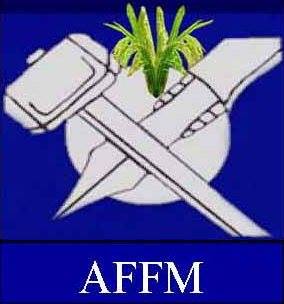The Right to Cultivate
by Agriculture and Farmers Federation of Myanmar (AFFM)
Kachin State in northern Myanmar is located in the country’s mountain region. It has a humid subtropical climate bordering on a tropical savanna climate. Temperatures are very warm throughout the year, although the winter months (December to February) are milder. There is a
winter dry season (November to April) and a summer wet season (May to October).
About 90% of Kachin State is covered with forest. The area is home to valuable timber, various plant species, and mineral resources. The Phar Kant Township in Kachin State purportedly produces the best jade in the world. The World Wide Fund for Nature has also called Kachin State one of the most biodiverse regions in Asia, but also the least explored.
A majority of the inhabitants are ethnic Kachin, which is comprised of six tribes or subdivisions, namely, the Lisu, Rawang, Jinghpaw, Lachid, Lhaovo, and Zaiwa. Locals rely on farming but mainly within one’s capacity. The farmers grow rice, corn, potatoes, and seasonal fruits, but these are not enough to be sold to the market because the farmers grow just enough for their family’s use. The residents also work for stone and wood manufacturing companies.
There is ongoing fighting between Myanmar government forces and the Kachin Independence Army (KIA) following the collapse in 2011 of a ceasefire that had been in place since 1994. The KIA seeks to address the issue of ethnic and minority representation in the Myanmar government which is dominated by the Bamar ethnic group.
Against this backdrop, the Agriculture and Farmers Federation of Myanmar (AFFM), a national farmers union with 52,000 members (23% of whom are women) spread in 11 regions and states, undertook to improve the lives and develop the capabilities of small-scale farmers who are facing difficulties in the area. The AFFM petitioned the Myanmar government to implement the right to possess and cultivate up to 50 acres of Vacant, Fallow, and Virgin Lands under the Vacant, Fallow, and Virgin Lands Management Law (The Pyidaungsu Hluttaw law No. 10/2012). In this endeavor, AFFM involved 640 participants, 40% of whom are women and 35% belong to the youth sector.
AFFM started its campaign for the right to cultivate Vacant, Fallow, and Virgin Lands in August 2016, as part of the implementation of the project between FAO-Forest and Farm Facility and Asian Farmers Association (AFA), of which AFFM is a member. As a first step, trade unions and leaders surveyed the lands. They had to negotiate with ethnic armed groups in the area.
AFFM also met with municipal government organizations, led by its President and General Secretary. AFFM likewise met with local farmers to report AFFM’s findings regarding the area.
After preparing the documents needed in line with the law and procedure, the trade union met with the municipal government and the Kachin State Chief Minister. The municipal government granted the petition of AFFM submitted through the Chief Minister.
The AFFM project aims primarily to implement an organic zone, create a market for organic produce and fulfill the objectives of the project through a cooperative consisting of the farmers. Through this strategy, the project hopes to generate high income for farmers. The project will also help the farmers appreciate and apply market management techniques.
Most of the participating youth were not interested in cultivation. They assumed that farming is not their business. AFFM is optimistic that the success of the planned organic zones, coupled with the development of agricultural technicians and agricultural training centers as components of the project, will change the perspectives of the youth and will encourage them to participate in the project. AFFM recognizes that the participation of the youth is important for sustainable agriculture.
If the project succeeds, AFFM plans to replicate the strategy in other places in Kachin. The government recognizes the agricultural sector as the most important part in the implementation of development practices in this undeveloped region.
This small AFFM project was a success, but it also met challenges. Peace and order is one of the biggest challenges as skirmishes between government forces and ethnic armed groups persist. These conflicts unnecessarily delay the implementation of the project and endanger the lives of participants. It is difficult to conduct surveys, research, and measurements with the ongoing conflict. However, the current government is leading the peace process with the launch of the 21st Century Panglong Peace Conference. In time, peace agreements are expected to be crafted, which will certainly accelerate the implementation of AFFM efforts.
Share this:
- Click to share on Facebook (Opens in new window) Facebook
- Click to share on X (Opens in new window) X
- Click to share on LinkedIn (Opens in new window) LinkedIn
- Click to share on WhatsApp (Opens in new window) WhatsApp
- Click to share on Reddit (Opens in new window) Reddit
- Click to share on Telegram (Opens in new window) Telegram
- Click to share on Pinterest (Opens in new window) Pinterest
- Click to share on Tumblr (Opens in new window) Tumblr
- Click to share on Pocket (Opens in new window) Pocket
- Click to email a link to a friend (Opens in new window) Email
- Click to print (Opens in new window) Print




Comments are closed